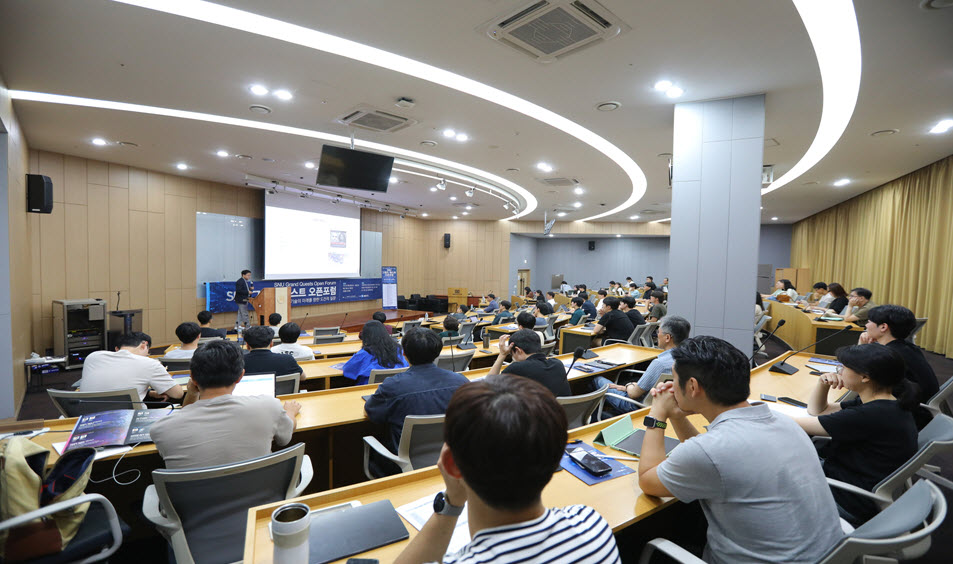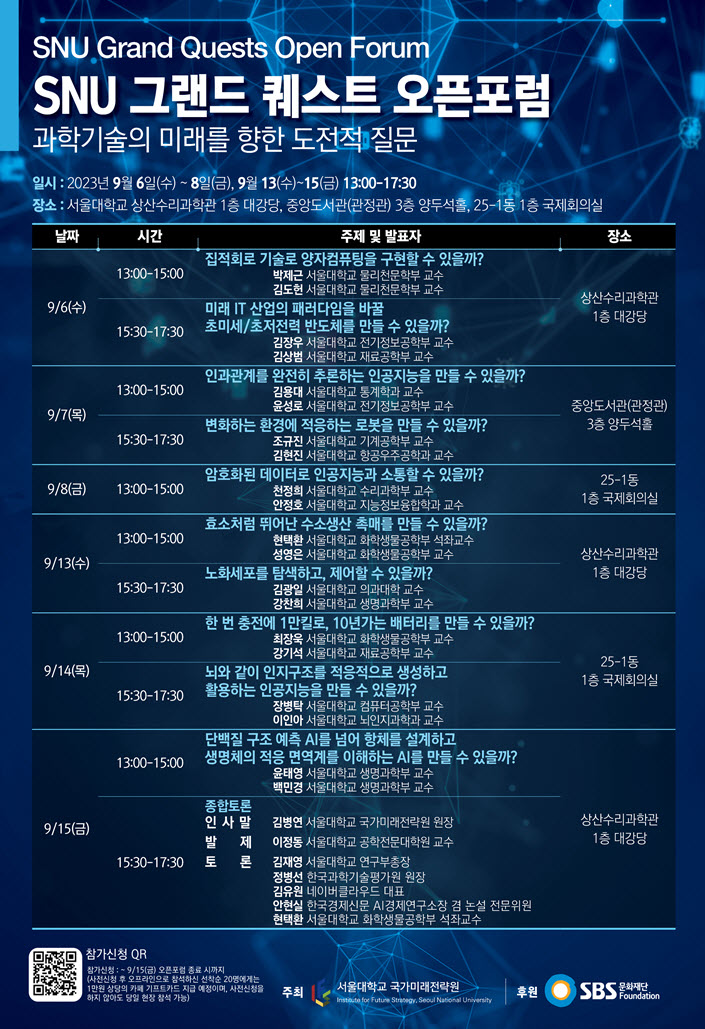
A photo of the lecture hall during the SNU Grand Quests Open Forum
In September, sessions for the SNU Grand Quests Open Forum were hosted on campus. Lecturers, professors, and experts from various fields gathered to present on ten different topics headlined by the theme “Challenging the Future of Science and Technology.” Heralding South Korea’s eventual status as a pioneer of scientific technologies, Professor Jeong-Dong Lee of the Institute for Future Strategy explained that the forum’s purpose was to “pose questions crucial to our country’s advancement.”
Topics covered by the forum evoked important questions related to technology, on subjects such as privacy, AI inference, and methods of combating aging. The Institute for Future Strategy and its “Future of Science Technology” cluster (an affiliate group under the institute) supervised the selection of topics; owing to Chat GPT’s recent success and prominence, many of the topics centered around discussing potential applications of AI. During their presentation, Professors Yong Dai Kim (Department of Statistics) and Sungroh Yoon (Department of Electrical and Computer Engineering) debated the feasibility of developing AI models capable of reliably deducing causality. In introducing how AI learns to think, Professor Kim elaborated that a “decision making” model could be used to elucidate the logical thought processes of machines.

Poster for the SNU Grand Quests Open Forum
Addressing the current, volatile state of climate change, Professors Taeg Hwan Hyeon and Yung Eun Sung of the Department of Chemical and Biological Engineering tackled the question of hydrogen production in their presentation. Professor Sung emphasized the costs and inefficient nature of hydrogen production methods, stressing that, currently 33 kilowatts of energy is required to produce a 1kg of hydrogen. Both Professors Hyeon and Sung acknowledged the importance of hydrogen in curbing carbon dioxide emissions and encouraged onlooking students to investigate ways to streamline its production in the future.
Protecting Technological Sovereignty: Introducing the “Future of Science and Technology” Cluster
The Institute for Future Strategy at Seoul National University brings together professors from various fields to address questions concerning important social change and issues. Among its many clusters, including “Democracy,” “Pandemic,” and “Carbon neutrality,” the “Future of Science and Technology” cluster aims to find ways to usher a bright future for science and technology in South Korea.
Beyond its recent role in managing the open forum sessions, the “Future of Science and Technology” cluster has hosted other on-campus events as well as taken part in research projects. Professor Lee, an active member of the Institute for Future Strategy, made note of the cluster's ongoing collaboration with the Fraunhofer lab in Germany, to research solutions for technological sovereignty—a topic of great international significance.
Professor Lee revealed that the cluster intends to continue hosting open forums on an annual basis. Through the Grand Quests Open Forum takes on challenging and imposing questions, Professor Lee advised students in the audience of the importance of expanding one’s horizons in research as well as academia.
Source: https://www.snu.ac.kr/snunow/snu_story?md=v&bbsidx=143856
Written by Min Seo Ki, SNU English Editor, mskey717@gmail.com

